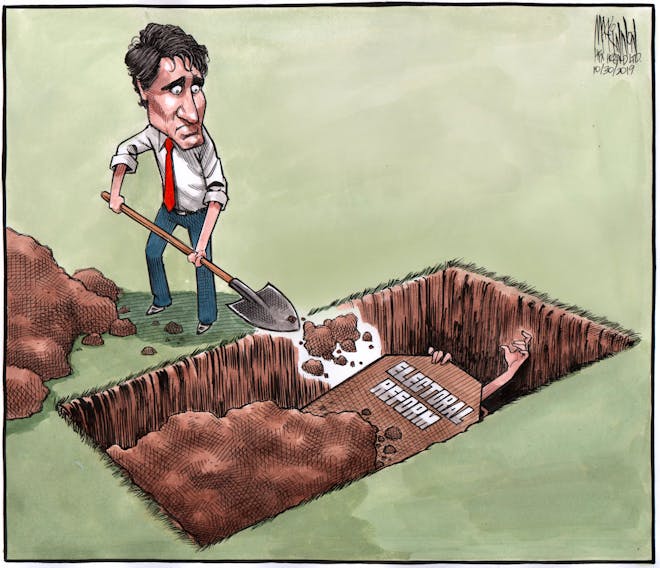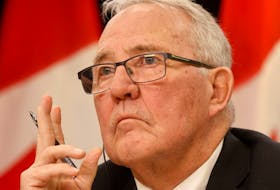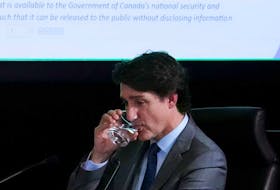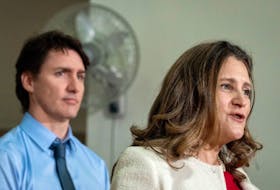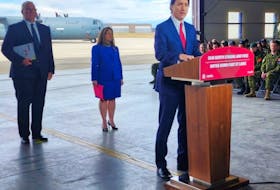CLIVE DOUCET
Right now, there’s a bruising byelection campaign going in Ottawa-Vanier, with the Ontario Liberals struggling to hold on to a seat they’ve owned for a century. The NDP are sensing blood and are out in full force, with the Greens hammering along beside them.
The old expression is “politics is a blood sport.” This is what we saw right across the country in the federal election of 2019. It was a very tough, very dirty election. In the end, people voted, not for what they wanted, but to make sure their vote counted by casting “strategic” ballots.
I saw it up close and personal in Cape Breton where my campaign started strong, but faded the closer we got to election day. It was the same for the NDP. As a woman in Glace Bay said at the door: “I started out thinking to vote Green, then thought, ‘No, I’m NDP; that’s where I should vote.’” But when she got into the polling booth, her pencil went up to the Liberal candidate. She feared that a vote for the NDP would, in effect, allow the Conservatives to win.
Liberal strategists knew what they were doing when they dumped their promise of electoral reform in the last Parliament. Nor will we ever get the old parties to change, because they need first-past-the-post elections in order to have some hope of forming a majority government. Under a proportional voting system like most progressive nations have (e.g. New Zealand, Sweden, Germany, etc.), the old parties would have to share power, and none want that.
Yet the country needs it. So does the planet — for the countries with proportional representation have the best environmental and social-justice laws. Sweden, for example, has had Green members of Parliament since the 1980s.
On Feb. 1, we organized in Ottawa the first public discussion of the possibility of the Greens and the NDP co-operating during the next election, with the suggestion to present a single candidate in ridings where the parties were running third and fourth. My very modest proposal was to campaign together for just one election around four axial issues: electoral reform, carbon emission reduction and a guaranteed basic annual income. Get it done and go back to your corners.
This shouldn’t come as a shock. Neither the Greens nor the NDP are new to the Canadian politics. The Greens have been around since 1983, the NDP since 1961 (and its CCF roots reach back to the 1930s). Both are suffering enormously from an electoral system designed in the 19th century for two parties, not for five in the 21st, but I detected very little desire from the NDP for a common effort, even for as a test for one election. The NDP’s reaction to the trauma of a disastrous election has been to energize their organizers to fight even harder to defend their political walls, but not change.
Under proportional representation and with a shared platform, the federal Greens and NDP together would have had elected 27 MPs. It could be worse. In the climate-crisis-denying heartland of Australia, the Greens garnered 10 per cent of the popular vote and saw just one MP elected.
The stark reality is that the Earth and the climate crisis are deaf to the human condition. The biological reality is we are not NDPers, Greens or Liberals; we’re just one of Earth’s many life forms. This idea is all about humility, which is not the stuff of politics that works today. Think Boris Johnson. Think Donald Trump. These are not humble men.
But in Canada, it would be relatively easy to change this political jigsaw puzzle. The entire Canadian political landscape would change if suddenly the progressive vote was divided in just two ways instead of three.
Curiously, it is political co-operation around the climate crisis, not competition, that has become the most revolutionary action we can take today, and many people see this. As one woman replied when I asked her why she was attending: “Hope, I see hope here.”
Clive Doucet is an author and former Ottawa city councillor. His most recent book is Grandfather’s House: Returning to Cape Breton. He was a Green Party candidate in Cape Breton/Canso in 2019 and is currently the federal Green party fisheries critic.

